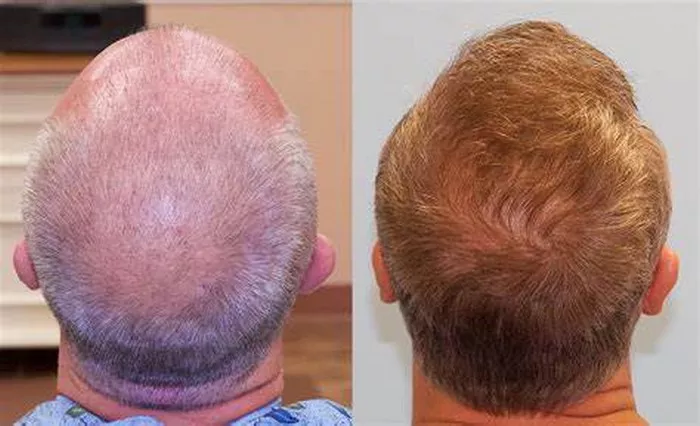Follicular Unit Extraction (FUE) has become a popular method for hair restoration due to its minimally invasive nature and the natural-looking results it can produce. However, post-operative care is crucial for ensuring the success of the procedure, and this includes understanding the effects of alcohol consumption. This article will explore when it is safe to drink alcohol after an FUE procedure, the reasons behind these guidelines, and tips for promoting optimal recovery.
Understanding the FUE Procedure
1. What is FUE?
FUE is a hair transplant technique that involves extracting individual hair follicles from the donor area (usually the back of the head) and transplanting them into the thinning or balding areas. The benefits of FUE include:
Minimal scarring
Quick recovery time
Less discomfort compared to traditional methods
2. The Recovery Process
After an FUE procedure, patients typically experience some swelling, redness, and discomfort in the donor and recipient areas. Understanding the recovery process is essential to know how lifestyle choices, such as alcohol consumption, can impact healing.
The Impact of Alcohol on Recovery
1. Blood Thinning Effects
One of the primary concerns regarding alcohol consumption after FUE is its blood-thinning properties. Alcohol can:
Increase bleeding: This can complicate the healing process and affect the viability of the transplanted follicles.
Prolong swelling: Alcohol can exacerbate inflammation and lead to more noticeable swelling in the days following the procedure.
2. Dehydration Concerns
Alcohol is a diuretic, meaning it promotes the production of urine, which can lead to dehydration. Dehydration can negatively impact recovery by:
Slowing healing: Adequate hydration is essential for optimal healing, and dehydration can impede this process.
Affecting hair growth: Proper hydration supports blood flow and nutrient delivery to the scalp, which is crucial for the growth of transplanted hair.
3. Impairing Immune Function
Excessive alcohol consumption can weaken the immune system, making the body more susceptible to infections. After a hair transplant, the scalp is particularly vulnerable, and a compromised immune system can lead to:
Infection risks: Higher chances of infection in the donor or recipient sites can adversely affect results.
Delayed recovery: A weakened immune response can slow down the overall healing process.
Guidelines for Alcohol Consumption After FUE
1. Immediate Post-Operative Period
Most surgeons recommend avoiding alcohol for at least 72 hours after the FUE procedure. This allows the body to stabilize and reduces the risk of complications associated with alcohol consumption. Key points to consider during this period include:
First 24-48 Hours: Focus on rest and recovery, keeping the head elevated to minimize swelling.
Hydration: Drink plenty of water to stay hydrated and support recovery.
2. After 72 Hours
After the initial 72 hours, many patients may wonder if it’s safe to resume alcohol consumption. While some surgeons may allow moderate drinking, it’s essential to consider the following factors:
Consult with Your Surgeon: Always follow the specific advice of your surgeon, as they understand your unique situation.
Moderation is Key: If given the green light, limit alcohol intake to small amounts to avoid complications.
3. Long-Term Considerations
In the weeks following the procedure, patients should remain mindful of their alcohol consumption as the scalp continues to heal. Recommended practices include:
Wait at Least Two Weeks: Many surgeons advise waiting at least two weeks post-procedure before resuming regular alcohol consumption.
Monitor Your Body: Pay attention to how your body responds after drinking. If you notice increased swelling or discomfort, it may be best to abstain longer.
Additional Recovery Tips
1. Follow Post-Operative Instructions
Surgeons typically provide specific post-operative care instructions, including how to care for the transplanted area and what activities to avoid. Adhering to these guidelines is crucial for achieving the best possible results.
2. Maintain a Healthy Diet
A balanced diet rich in vitamins and minerals can support the healing process. Consider foods high in:
Proteins: Essential for tissue repair.
Vitamins A and C: Promote skin health and healing.
Zinc and Iron: Important for hair growth and overall recovery.
3. Stay Hydrated
Drinking plenty of water is essential for optimal recovery. Aim for at least eight glasses of water per day to maintain hydration levels.
4. Avoid Smoking and Other Substances
Smoking can significantly impede blood flow and delay healing, so it’s advisable to avoid it during the recovery period. Other substances that could affect recovery should also be minimized.
Signs of Complications
While many patients experience a smooth recovery, it’s essential to be aware of signs that may indicate complications.
If you experience any of the following, contact your surgeon immediately:
Increased redness or swelling in the donor or recipient areas.
Pus or unusual discharge from the sites.
Persistent pain not managed by prescribed medications.
Fever or chills.
Conclusion
Understanding when it is safe to drink alcohol after an FUE hair transplant is vital for promoting optimal recovery and achieving the desired results. By avoiding alcohol for at least 72 hours post-surgery and following your surgeon’s recommendations, you can help ensure a smoother healing process and minimize the risk of complications. Prioritizing hydration, nutrition, and adherence to post-operative care will set the foundation for successful hair restoration and growth. Remember, every patient’s recovery journey is unique, so always consult with your healthcare provider for personalized advice.
Related topics:
- When Can You Scratch Your Head After FUE Hair Transplant?
- Why Are Hair Transplants So Expensive? To Get the Truth
- Why Do Hair Transplants Look Fake? Understanding the Factors


